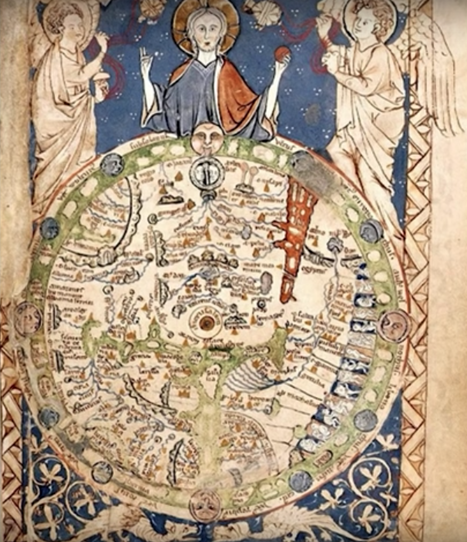|
"So fast", somebody commented on the 7th Symphony of Beethoven. Did he think so as he wrote it? Was it to surprise or to amaze anyone but self? Why so complicated? One word comes to my mind - boredom. Mind complicates things of boredom. And it's just a matter of preference where we direct that excessive energy. Which area of life will I complicate today? Whether that be my relationship, work or art, or? The complicity of multilayered themes, overlapping, yet, remaining independent in its core, the symphony plays out itself as a metaphor of life, and the casual listeners are speechless, the experts intrigued, the artists inspired, the dull mind unmoved. The frequency at which the organism vibrates recognizes similar frequency without words, that's physics, causing the resonance. Not everyone attending classic concert is functioning at multiple thinking patterns that are playing itself out in symphony. Some just pretend. And the couple carefully chosen questions unveil the truth. one look into the eyes, one look into the soul. The imitators flee. Goodbye, Elise. Heard this melody so many times, as if Elise just stands at the door, maybe she never wanted to leave, yet, she was told "Goodbye"? Elise as Eve, was told to leave by the Creator. (sounds unfair, isn'?) Without her leaving the masterpiece loses its meaning. Imagine, we all got sad imagining how painful for her was to leave and she was just sitting here all the time in the room, "Hi". We feel betrayed, and almost want her gone, so we would be able to experience the drama, the harsh emotions cause by grief of losing her, the longing turning to nostalgic melody. Remember of "those old good days", when she was holding our hand? But that is a story I invented, because the truth is she was never here, she never came, or if she came, she never stayed, and more than that, forget the wedding, she refused. And Creator was sitting alone at the piano and finding comfort in these sound vibrations, who held his lonely heart. The music of the spheres. Plot twist. Impossible dream, unfulfilled wish, the torture of unreachable bled into the piano sheets. It is not a rage song, he doesn't swear. He just documents his poor choice of love, or is it great choice, a noble choice, to love without expectations that love will be returned? “If you love those who love you, what credit is that to you? Even sinners love those who love them. And if you do good to those who are good to you, what credit is that to you? Even sinners do that. And if you lend to those from whom you expect repayment, what credit is that to you? Even sinners lend to sinners, expecting to be repaid in full. But love your enemies, do good to them, and lend to them without expecting to get anything back. Then your reward will be great, and you will be children of the Most High, because he is kind to the ungrateful and wicked. Be merciful, just as your Father is merciful. " (Luke 6:32-36 ) "Für Elise" (German for For Elise) is the common name of the "Bagatelle in A minor", written by Ludwig van Beethoven in 1810. The song was written for a lady called Therese (nicknamed Elise) that Beethoven wanted to marry in 1810. Therese did not want to marry him. The shadow of the unfulfilled love desires colors the piece of art with timeless common denominator for humanity - suffering. Yet, if Beethoven knew his worth in the eyes in God, would he had spent his days composing the memory of tragic loss? Or maybe it was a gift for Elise, agape farewell. “The heart is deceitful above all things, And desperately wicked; Who can know it? (Jeremiah 17:9) Spending days remembering people who left our lives, creating art to document, immortalize it, imprint it in the canvas of time, is it a way to talk about common human experiences or just dance with your own self-pity, or it is the method to enable creativity, or is the heart unconsciously is seeking such experiences so from it could flow such a perfect yet decadent tunes for our own entertainment? Do we tend to remember what hurt us the most? Or those most amazing moments of total peace and relief? The time we got sick or the time we got healed? Selective memory, a sign of trauma, take a shovel, we are digging into the past, that is not there, a cloud of distorted data, a spinning sphere on which I stand, looking at the horizon, and it rolls, and the diagram of emotion rise up and sets with the sun, disabling "always" and "never", bringing the judgment day closer, covering the truth with the shapeshifting details, dusts, as I call the winds from the four corners, to clean the table, where I serve the bread for pigeons. What must be there, inside of mind, to have a wish to play church organ from the early days? Isn't that an ambition to be able to control multiple melodies simultaneously, as if each of it would be the tread of life? He was sitting at the piano all the time. Maybe nothing ever happened, and the history was faken, maybe it was all in his mind, the ups and downs, the gains and lost. Maybe he never proposed, and just glanced at Therese through the rose tinted glass, as she was passing by the flower shop, stopping to smell the rose, holding the dagger behind her back. Robert Schneider: 'Brother of Sleep'. A musical, self-pitying genius lives among village residents who are mentally rather slow. Robert Schneider's novel delves into German Romanticism. "This is the story of the musician Johannes Elias Alder, who took his own life at the age of twenty-two, after he had resolved never to sleep again." This is how Robert Schneider's debut novel from 1992 begins. The very first sentence makes it clear that the literary hero will die, lending a dark, melancholy mood to the entire novel. The short life of the Schneider's main protagonist, Johannes Elias Alder, begins in the early 19th century in Vorarlberg, Austria, a village wrought with in-breeding and narrow-mindedness. The book tells the story of a unique boy. Even at a young age, it become abundantly clear that the village is home to a very special person, a child that looks different from the rest of the coarse peasant population, people who behave and express themselves differently. It's also a child with a very special talent. Elias experiences a revelation at the tender age of five: "Sounds, noises, timbres, and tones arose, the like of which he had never heard before. Elias not only heard the sounds, he also saw them. He saw the air incessantly contracting and expanding. He saw into the valleys of sounds and into their gigantic mountain ranges. He saw the hum of his own blood, the crackle of the tufts of hair in his little fists." Following this experience, during which he apparently achieves absolute pitch, he also develop an exceptional musical talent, which leads him to become the church organist. Why horror movies, portraying lives of the psychopaths, are so often using classical music? Perhaps because the mind of the advanced serial killer is somehow resembling the mind of the musical genius, who can play complicated game of sounds. And a killer plays complicated game of other's lives. That's the danger of intellect, the more it advances the more boredom it experiences, not finding equivalent resonance in the surroundings, therefore prone to creating a complex structure, a plot, a monument, a Tower of Babel. I bet it was beautiful, yet it wasn't one and only in Babylon that was built and destroyed. The towers are built in the head non stop where the civilization marches, leaving its mark, mark of the Beast. But wait, there was nothing like that in the story of Elias. Or was it the seed of the Beast that killed him? We are the pot full of dirt, both divine and demonic seeds are being planted. Roses and weeds. Elias. The Greek form of the Hebrew Elijah, meaning Jehovah is God. A boy that was a town's weirdo, mocked and experienced the betrayal, the unfulfilled love desire. Used his time to produce the sounds that moved souls and yet, died tragically. Tragic genius becomes a hero, when using the tools of art to express the destiny. And others, gifted with complicity men, who choose to play with the lives of others, become serial killers, like Hannibal Lecter, whose character was also a big fan of classical music. Unable to produce art from loving heart - they destroy the art God created. The town's fool becomes a legend. The Fool doesn't build the Tower of Babel, he stays isolated. In order to build the tower you have to gather many helping hands, and the Fool spends time using his hands to play. Not because of the desire to get closer to heavens, he already came from there, he knows the name of the most high, he doesn't need to climb up over the heads, to prove anything, he is connected, via the heart, from which pours the announcement of the tragedy yet to come. Just for the human drama, just to teach the lesson, which nobody learns in any other way but empirical one. The talent to reveal prophecies and the distraction of the wicked heart desires willing to destroy the messenger, playing duo. The Fool knows the tower will fall, and that makes him Genius in disguise. And he stay in the role till it happens. The Lord Almighty has a day in store for all the proud and lofty, for all that is exalted (and they will be humbled). (Isaiah 2:12-22) It is one thing to notice that the apple fell from the tree. And another thing is to write down the formula of that happening. Does complication leads to sadness and boredom leads to complication? There was no complication in the Garden, just joyful peaceful existence and simplicity. And yet the mind got tempted to know more. With that wish came the doom. Knowing more obviously didn't lead to more joyful life. And as we run around trying to create our own Heaven on Earth, isn't that urge just a synthetic attempt to overcompensate which once was lost? The tunnel turns to circle, and as Christ reaches bottom, where is seen as a Fool, mocked and killed, then he rises again as a King. So is Elias, the organ player, the one who's name claims that Jehovah is God. The Fool is the only one who dares to speak truth, as in the fairytale, telling that the king has no clothes. And the truth liberates. And the game of life plays itself again. Through different vessels, we witness the repetition. Pride comes before the fall, therefore the kings lose their positions. And those who were seen as fools rise and sit in the thrones. Yet those thrones are sometimes in heaven, because the game is more interesting when you just have a promise of possibility to win eternity, it keeps many guessing and more desperate yet fascinating combinations appear on the table. Fortune is a blind faith. A lover of truth is the lover of game creator (spent a lifetime finding out it was not made in China) and that's what grants the victory, according to the game's instruction. I still have to make my move. Even knowing it will hurt. Even if the right moves that leads to success I make on the board are now obscured the clouds of dusts, caused by rapid moves of other players. The sheep is less attractive than wolf, as self destructive instincts may look more cool in your twenties than a cup of warm milk, both leading to sleep. Sleep symbolizes death, and that is the entrance To the nightclub, or the garden, depending for which team you've been playing. Black leather looks cool, but in the end of the day, who doesn't want to win? So I drink my milk and roll into the wool. Even if that means a swagrifice. - Shaltmira.
0 Comments
Leave a Reply. |
SHALTMIRANo need to be fancy. Archives
May 2020
Categories |



 RSS Feed
RSS Feed